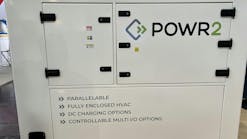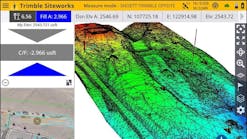A team of Surrey University researchers in England recently used an ice-rink to test anti-skidding on an AI-powered, driverless car.
The University's ZEBRA car—which stands for Zero Emission test Bed for Research on Autonomous driving—drove for 90 minutes to test traction control.
The team is using AI to develop a method of preventing skidding in icy or wet conditions. The system currently has the capability to sense when the wheels are spinning too quickly and adjusts the power accordingly.
"Our system appeared to work very well, and we must now analyze our data and prepare for further tests," Carmine Caponio, researcher in automotive engineering at the University of Surrey, said.
Read also: University of British Columbia tests AI-powered construction robots
"It is highly unusual to be able to test technology on ice like this outside of large industrial companies–so to have a facility like the Spectrum available to us is a real privilege," said Caponio.
By using its driverless function, the researchers were able to more accurately control the vehicle's acceleration, enabling more precise, consistent tests.
"We hope our findings will be of great interest to car makers and can help make driving safer in slippery conditions for millions of drivers." Mario Mihalkov, researcher at Surrey's Center for Automotive Engineering, said.
The team hopes to return to the rink for more tests in early 2024.





